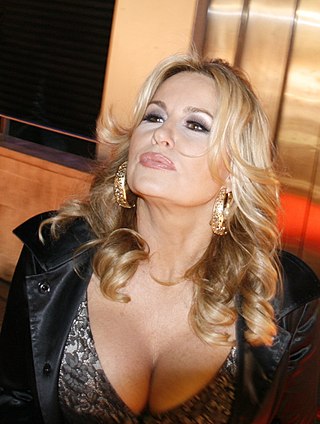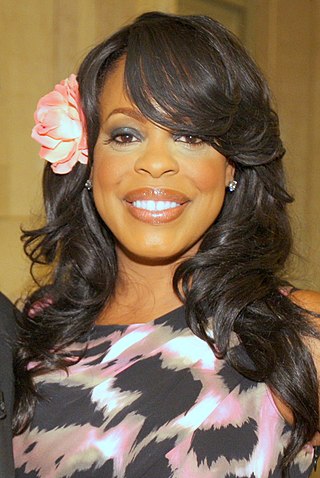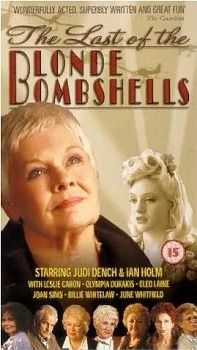
Sir Kenneth Charles Branagh is a British actor and filmmaker. Born in Belfast and raised primarily in Reading, Berkshire, Branagh trained at London's Royal Academy of Dramatic Art and served as its president from 2015 to 2024. His accolades include an Academy Award, four BAFTAs, two Emmy Awards, a Golden Globe Award, a Screen Actors Guild Award, and an Olivier Award. He was appointed a Knight Bachelor in the 2012 Birthday Honours, and was given Freedom of the City in his native Belfast in 2018. In 2020, he was ranked in 20th place on The Irish Times' list of Ireland's greatest film actors.

Olympia Dukakis was an American actress. She performed in more than 130 stage productions, more than 60 films and in 50 television series. Best known as a screen actress, she started her career in theater. Not long after her arrival in New York City, she won an Obie Award for Best Actress in 1963 for her off-Broadway performance in Bertolt Brecht's Man Equals Man.

Romola Sadie Garai is a British actress and film director. Known for her extensive work on stage and screen, she often acts in period films. Her early film roles include Nicholas Nickleby (2002), I Capture the Castle (2003), Inside I'm Dancing (2004), and Dirty Dancing: Havana Nights (2004). She has gained prominence for her performances in the critically acclaimed costume dramas such as Vanity Fair (2004), As You Like It (2006), Amazing Grace (2007), Atonement (2007), Glorious 39 (2009), and Suffragette (2015).

Holland Taylor is an American actress. She won the 1999 Primetime Emmy Award for Outstanding Supporting Actress in a Drama Series for her role as Judge Roberta Kittleson on ABC's The Practice (1998–2003) and she received four Primetime Emmy Award nominations for her portrayal of Evelyn Harper on the CBS comedy Two and a Half Men (2003–15).
The Primetime Emmy Award for Outstanding Limited or Anthology Series represents excellence in the category of limited series that are two or more episodes, with a total running time of at least 150 minutes.

This is a list of winners and nominees of the Primetime Emmy Award for Outstanding Lead Actress in a Comedy Series. Beginning with the 18th Primetime Emmy Awards, leading actresses in comedy have competed alone. However, these comedic performances included actresses from miniseries, telefilms, and guest performers competing against main cast competitors. Such instances are marked below:

This is a list of winners and nominees of the Primetime Emmy Award for Outstanding Lead Actor in a Comedy Series. The award is presented to the best performance by a lead actor in a television comedy series. Beginning with the 18th Primetime Emmy Awards, leading actors in comedy have competed alone. However, these comedic performances included actors from miniseries, telefilms, and guest performers competing against main cast competitors. Such instances are marked below:

This is a list of winners and nominees of the Primetime Emmy Award for Outstanding Supporting Actress in a Comedy Series. In early Primetime Emmy Award ceremonies, the supporting categories were not always genre-, or even gender-, specific. Beginning with the 22nd Primetime Emmy Awards, supporting actresses in comedy have competed alone. However, these comedic performances often included actors from miniseries, telefilms, and guest performers competing against main cast competitors. Such instances are marked below:

This is a list of winners and nominees of the Primetime Emmy Award for Outstanding Supporting Actor in a Comedy Series. In early Primetime Emmy Award ceremonies, the supporting categories were not always genre, or even gender, specific. Beginning with the 22nd Primetime Emmy Awards, supporting actors in comedy have competed alone. However, these comedic performances often included actors from miniseries, telefilms, and guest performers competing against main cast competitors. Such instances are marked below:

The Primetime Emmy Award for Outstanding Lead Actor in a Drama Series is an award presented by the Academy of Television Arts & Sciences (ATAS). Beginning with the 18th Primetime Emmy Awards, leading actors in drama have competed alone. However, these dramatic performances included actors from miniseries, telefilms, and guest performers competing against main cast competitors. Such instances are marked below:

The Primetime Emmy Award for Outstanding Lead Actress in a Limited or Anthology Series or Movie is an award presented annually by the Academy of Television Arts & Sciences (ATAS). It is given in honor of an actress who has delivered an outstanding performance in a leading role on a television limited series or television movie for the primetime network season.

The Primetime Emmy Award for Outstanding Lead Actor in a Limited or Anthology Series or Movie is an award presented annually by the Academy of Television Arts & Sciences (ATAS). It is given in honor of an actor who has delivered an outstanding performance in a leading role on a television limited series or television movie for the primetime network season.

The Primetime Emmy Award for Outstanding Supporting Actress in a Drama Series is an award presented by the Academy of Television Arts & Sciences (ATAS). In early Primetime Emmy Award ceremonies, the supporting categories were not always genre-, or even gender-, specific. Beginning with the 22nd Primetime Emmy Awards, supporting actresses in drama have competed alone. However, these dramatic performances often included actresses from miniseries, telefilms, and guest performers competing against main cast competitors. Such instances are marked below:

This is a list of winners and nominees of the Primetime Emmy Award for Outstanding Supporting Actor in a Limited or Anthology Series or Movie. Before 1975, supporting actors featured in a miniseries or movie were included in categories such as comedy or drama. From 1975 to 1978, the award was called Outstanding Single Performance by a Supporting Actor in a Comedy or Drama Special. Despite the category's name, actors appearing in many episodes of a miniseries were included. In 1979, the award was named Outstanding Supporting Actor in a Limited Series or Special. The award was renamed again in 1986, in Outstanding Supporting Actor in a Miniseries or Special. By 1998, the award was renamed Outstanding Supporting Actor in a Miniseries or Movie.

The Primetime Emmy Award for Outstanding Supporting Actress in a Limited or Anthology Series or Movie is an award presented annually by the Academy of Television Arts & Sciences (ATAS). It is given in honor of an actress who has delivered an outstanding performance in a supporting role on a television limited series or television movie for the primetime network season.

The Primetime Emmy Award for Outstanding Supporting Actor in a Drama Series is an award presented by the Academy of Television Arts & Sciences (ATAS). In early Primetime Emmy Award ceremonies, the supporting categories were not always genre, or even gender, specific. Beginning with the 22nd Primetime Emmy Awards, supporting actors in drama have competed alone. However, these dramatic performances often included actors from miniseries, telefilms, and guest performers competing against main cast competitors. Such instances are marked below:

The 63rd Primetime Emmy Awards, honoring the best in prime time television programming from June 1, 2010, until May 31, 2011, were held on Sunday, September 18, 2011, at the Nokia Theatre in Downtown Los Angeles, California. Fox televised the ceremony within the United States. Jane Lynch hosted the Emmys for the first time. The Creative Arts Emmy Awards ceremony was held on September 10.
"You Rascal You" is an American song written by Sam Theard in 1929, and legally titled "I'll Be Glad When You're Dead." The lyrics take the form of threats and complaints leveled against a man who has repaid the singer's hospitality and kindness by running off with the singer's wife.
The Triple Crown of Acting is a term used in the American entertainment industry to describe actors who have won a competitive Academy Award, Emmy Award, and Tony Award in the acting categories, the highest awards recognized in American film, television, and theater, respectively. The term is related to other competitive areas, such as the Triple Crown of horse racing.
The Triple Crown or the Grand Slam are terms used in the entertainment industry to describe individuals who have won the three highest accolades recognised in British film, television, and theatre: a British Academy Film Award, a British Academy Television Award, and a Laurence Olivier Award respectively.
















